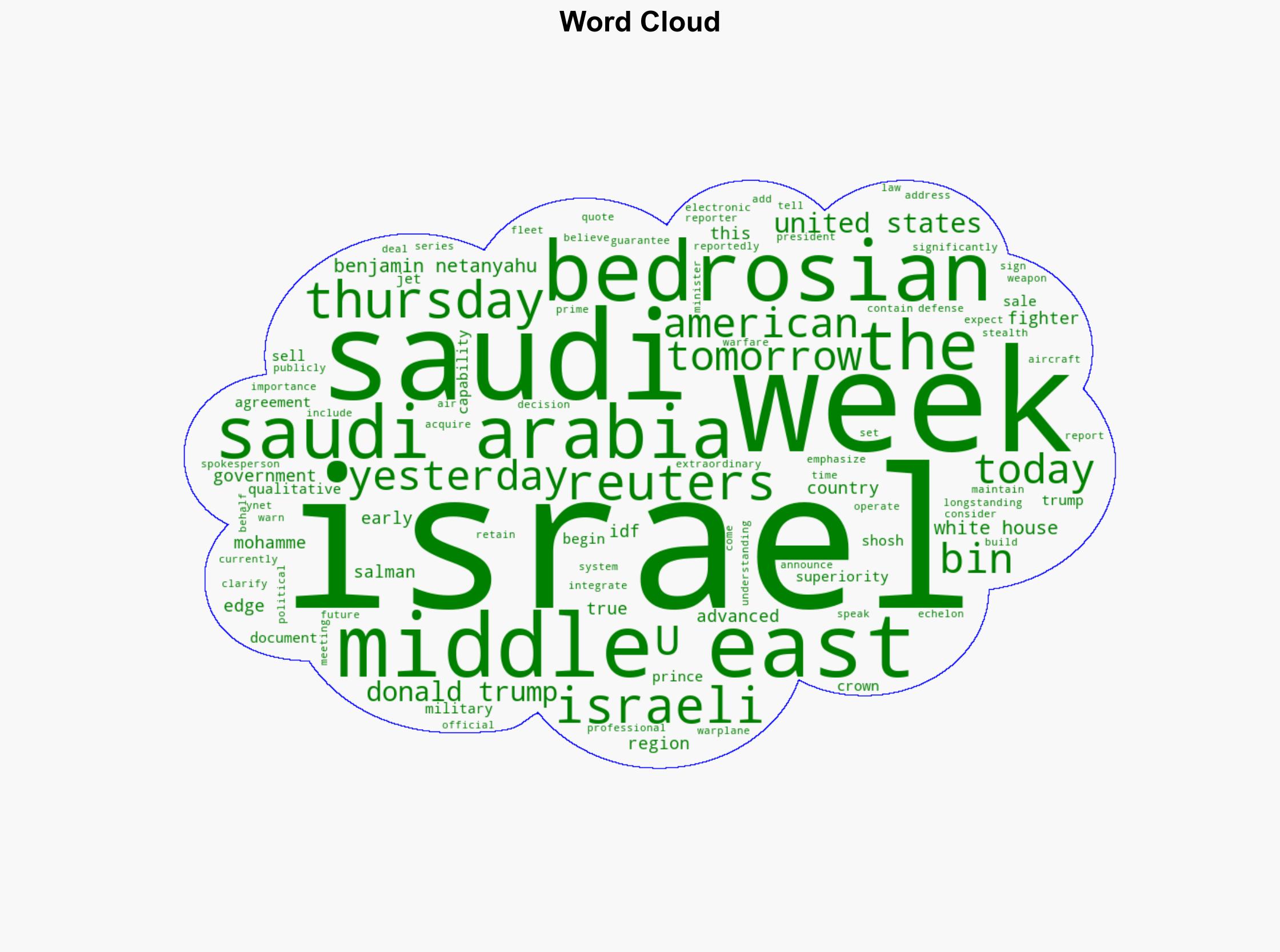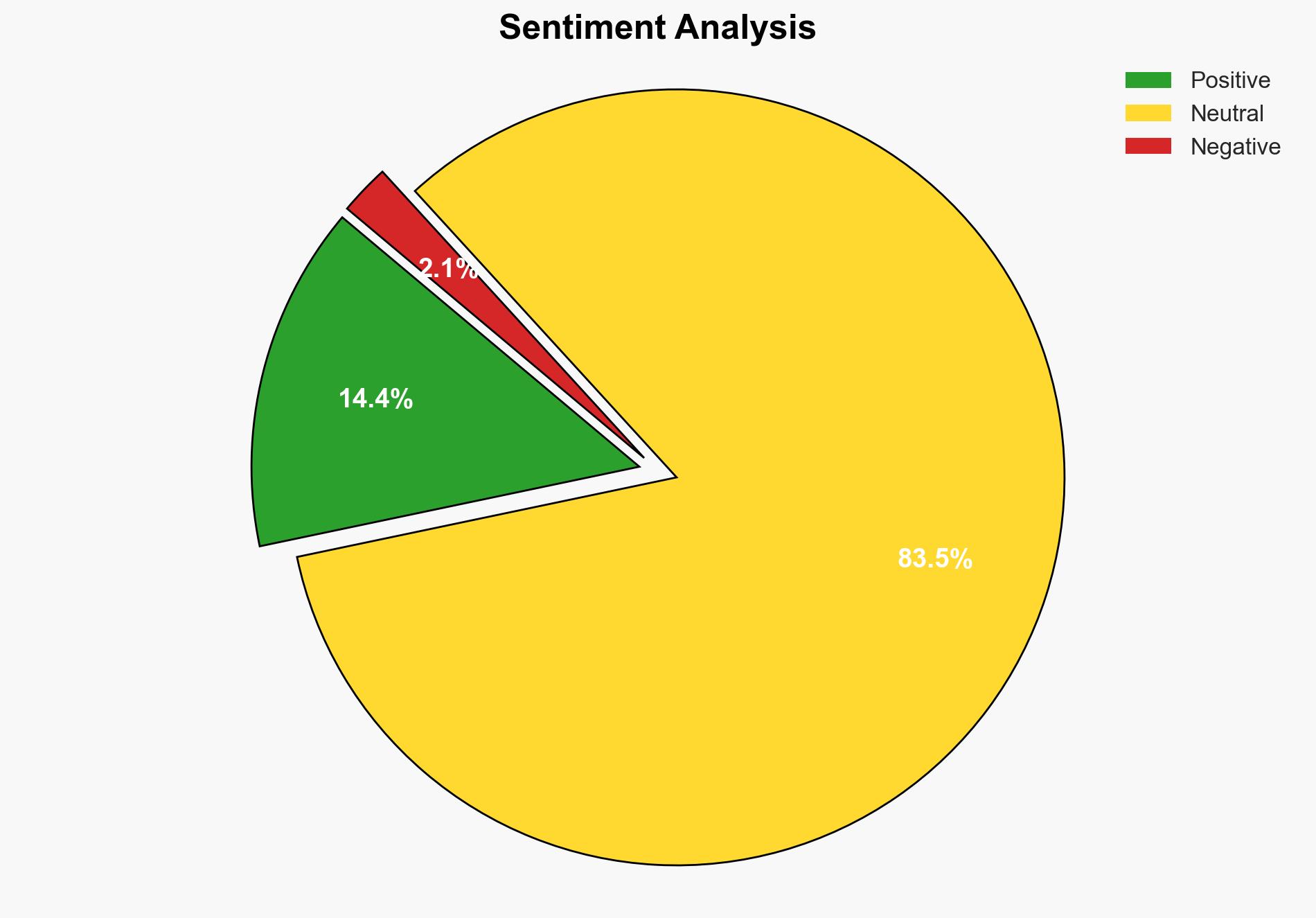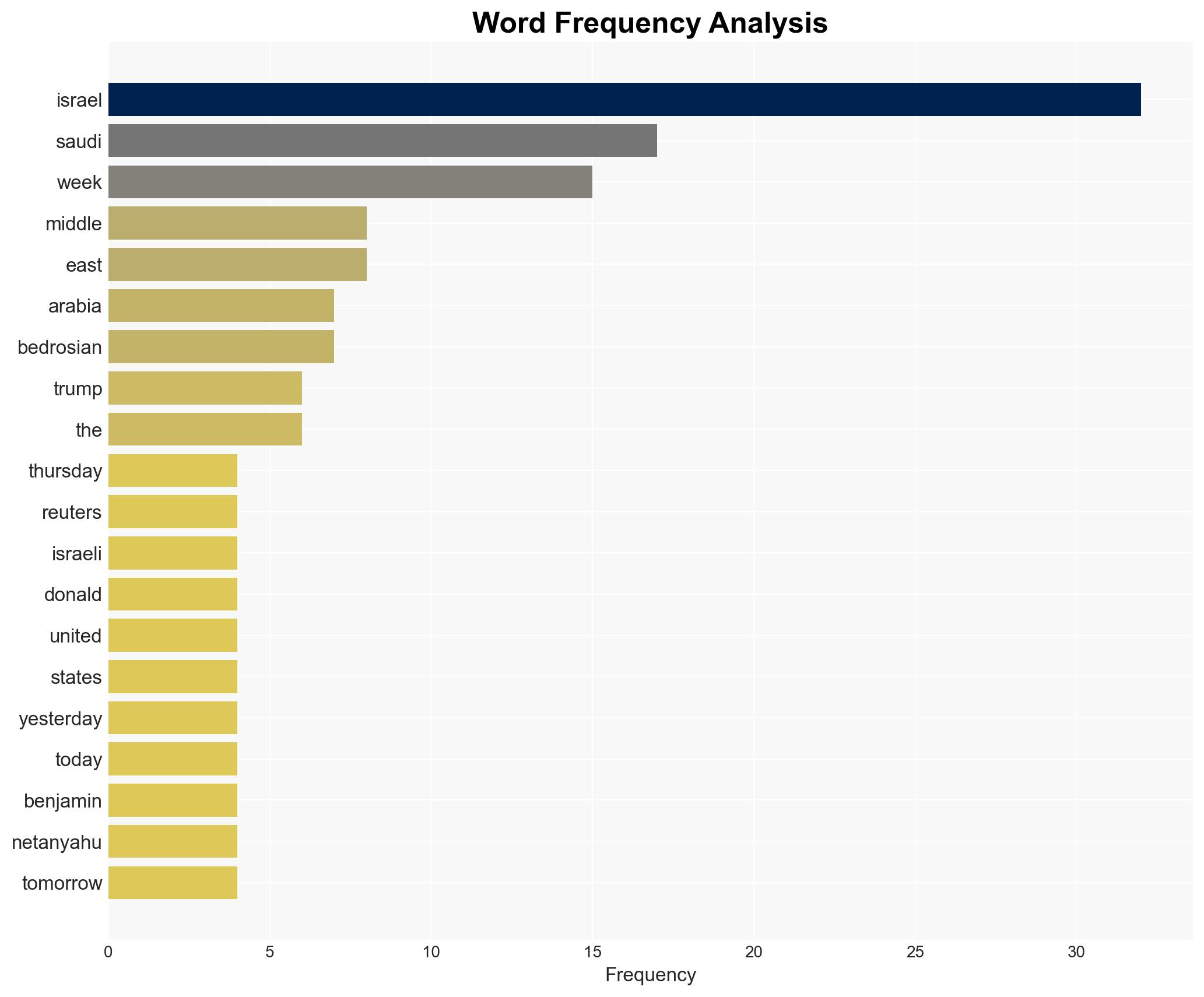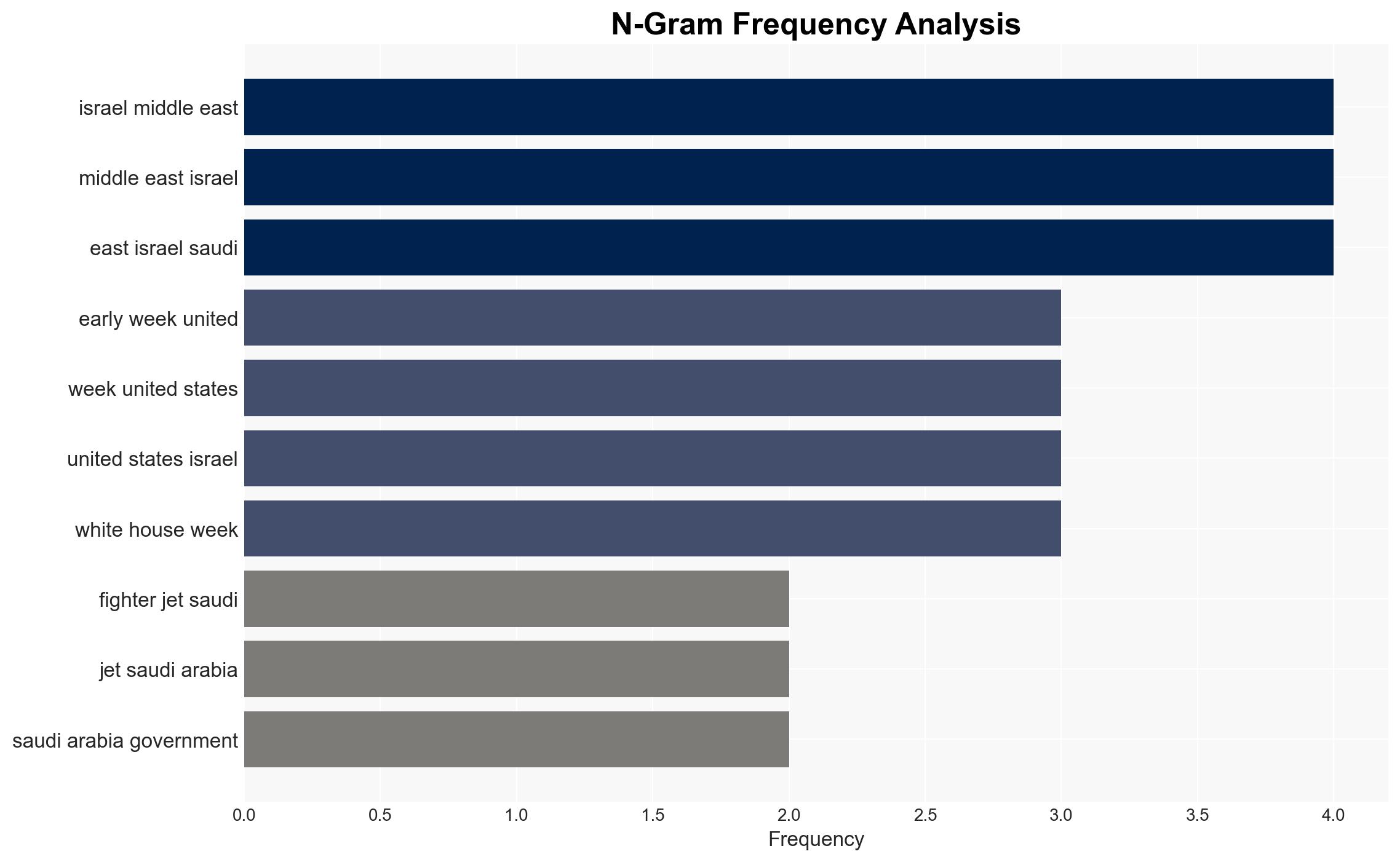Israel US F-35 sale to Saudis wont undermine our military edge – Israelnationalnews.com
Published on: 2025-11-21
AI-powered OSINT brief from verified open sources. Automated NLP signal extraction with human verification. See our Methodology and Why WorldWideWatchers.
Intelligence Report:
1. BLUF (Bottom Line Up Front)
The most supported hypothesis is that the sale of F-35 fighter jets to Saudi Arabia will not significantly undermine Israel’s qualitative military edge (QME) in the region, given the U.S.’s commitment to maintaining Israel’s superiority. However, there is a moderate risk of regional arms race escalation. Confidence Level: Moderate.
2. Competing Hypotheses
Hypothesis 1: The sale of F-35 jets to Saudi Arabia will not undermine Israel’s QME due to U.S. assurances and Israel’s existing technological and operational advantages.
Hypothesis 2: The sale will erode Israel’s QME, leading to increased regional instability and an arms race, despite U.S. assurances.
Hypothesis 1 is more likely due to historical U.S. policy of ensuring Israel’s military superiority and the advanced integration of Israeli systems with the F-35 platform. However, Hypothesis 2 cannot be dismissed due to potential shifts in U.S. policy and regional dynamics.
3. Key Assumptions and Red Flags
Assumptions: The U.S. will continue to prioritize Israel’s QME. Saudi Arabia will not use the F-35s in a manner that threatens Israel.
Red Flags: Changes in U.S. foreign policy priorities, Saudi Arabia’s military alignment, or acquisition of additional advanced systems could alter the balance.
Deception Indicators: Public statements from involved parties may not fully reflect private intentions or capabilities.
4. Implications and Strategic Risks
The sale could trigger a regional arms race, prompting other Middle Eastern countries to seek similar capabilities. This could increase political tensions and lead to economic strain due to heightened defense spending. Cybersecurity risks may also rise as nations seek to protect or exploit advanced military technologies.
5. Recommendations and Outlook
- Enhance diplomatic engagement with the U.S. to ensure continued support for Israel’s QME.
- Monitor Saudi military developments closely for any shifts in posture or capability.
- Strengthen cybersecurity measures to protect military technology.
- Best-case scenario: The sale strengthens U.S.-Saudi relations without impacting Israel’s security.
- Worst-case scenario: An arms race destabilizes the region, leading to conflict.
- Most-likely scenario: The sale proceeds with minor regional tensions but no significant shift in power dynamics.
6. Key Individuals and Entities
Shosh Bedrosian (Israeli Government Spokesperson), Benjamin Netanyahu (Israeli Prime Minister), Donald Trump (Former U.S. President), Mohammed bin Salman (Saudi Crown Prince).
7. Thematic Tags
Regional Focus, Middle East, Military Sales, Israel, Saudi Arabia, U.S. Foreign Policy
Structured Analytic Techniques Applied
- Causal Layered Analysis (CLA): Analyze events across surface happenings, systems, worldviews, and myths.
- Cross-Impact Simulation: Model ripple effects across neighboring states, conflicts, or economic dependencies.
- Scenario Generation: Explore divergent futures under varying assumptions to identify plausible paths.
Explore more:
Regional Focus Briefs ·
Daily Summary ·
Support us





